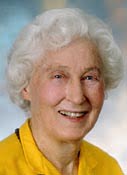Remote Regression and Past-Life Therapy For Children up to 9 Years – Herbert Van der Beek (Is.23)
 Abstract
Abstract
It is one thing to work with willing children who come to our offices seeking help. It is another thing entirely when parents and concerned adults wish to help the child but are restricted due to issues of locality, the child’s very young age, the child’s willingness, or even incarceration due to the child’s behavioral problems. This article offers a new approach using the willing adult acting as a surrogate for the child in the therapy process. As always, it is important to verify the parent’s inner experience in the surrogate role by observing the child’s actual behavioral change.
My son had nightmares for many months. After two sessions with a colleague by me … Read the rest





